#USRR
Explore tagged Tumblr posts
Text
In communism there isn't even the existence of a government, this is USSR socialism. If you're going to attempt to make a social critique at least get minimally educated in what you're criticizing in the first place.
i am just gonna say it. when i see y'all romanticise communism, especially on TikTok, it terrifies and disgusts me.
communism is not "comrade" jokes.
it's a regime that labeled people "enemies of the state" because they had two cows and were not prepared to give them up, because they spoke Ukrainian, because they criticized the regime or its policies, because they were not willing to die, giving up the last food they had.
this regime murdered a whole generation of poets, artists, civic activists for daring to express their opinions.
it murdered people it claimed to serve because of made up economy plans. estimates vary, but a minimum 3.9 million people starved, because there was a set amount of grain they had to give up, no matter what.
https://holodomormuseum.org.ua/en/the-history-of-the-holodomor/
read up on holodomor, law of three spikelets, executed renaissance, the great terror, the soviet dissident movement and STOP.
663 notes
·
View notes
Text
I think my pc has has enough of my bs It just rebooted itself witnout me doing anything
2 notes
·
View notes
Text
Fan Favorite (FC43)
summary: franco and y/n are everyone's favorite couple in the paddock. they serve, fans eat it up - simple as that.
franco colapinto x driver!reader
based on two different requests I got
cw: google translated spanish, lando and y/n are friends but they're hating on each other, franco is a simp, smidge of williams slander
fc: emily carey




liked by yourusername, williamsracing, oscarpiastri and 250,674 more
francolapinto: te amo mucho, mi corazon
tagged: yourusername
comments:
yourusername: te amo <3
user3442: oh to be franco colapinto
user332: franco can you fight?
landonorris: that last photo was a bit tmi
yourusername: no one made you look norizz landonorris: you're so mean
ynupdates: when I'm in a who's a bigger y/n fan competition but my opponent is franco
francolapinto: my beautiful girl
user33: dude this is your own post
user201: oh to be loved the way franco loves y/n



liked by francolapinto, williamsracing, landonorris and 1.547.365 more
yourusername: it's race weekend baby!
tagged: francolapinto, williamsracing
comments:
williamsracing: our favorite driver is back in the garadge
francolapinto: mi hermosa novia
francolapinto: mygirlmygirlmygirl
user323: another day of franco being in the likes before me
user22: franco's in the likes before the photos are even posted atp
landonorris: can't wait to outscore you again
yourusername: dude I'm driving a williams?! yourusername: admin don't look
ynnation: prettiest driver



ynupdates: franco looking at y/n is all of us
comments:
user221: no because that caption is so real
ynsbettercar: they're so obsessed with each other it's not even fair
f1fanat1c: find someone who looks at you the way franco looks at y/n
user553: so real, because if he's not like this then I don't want him
mclursa: praying for a relationship like theirs
th3ssf: they are the standard
livelughsformula: no because this is how franco looks at y/n 😍
user44: I too would look at my girlfriend like that if she was y/n l/n


f1wagupdates: y/n and franco spotted out having breakfast
comments:
oneonef: love how f1 wags posted this
user443: franco is y/n's wag first, williams driver second
ynupdates: fav couple
user090: they're so cute together
usrrs: having a relationship like theirs is not a want it's a need atp
usef1: mama and papa
user442: same, except I'm older than them
userrr: franco and y/n are why I believe in love



liked by landonorris, francolapinto, oscarpiastri and 998.546 more
yourusername: national boyfriend day post
tagged: francolapinto
comments:
francolapinto: ai corazon, you said you wouldn't post these
yourusername: I lied
username43: franco looks so cute with those glasses
use221: why is he looking at me like that
landonorris: the 3rd picture is unsettling me
yourusername: scroll away bitch landonorris: *gasp*
francolapinto: te amo te amo te amo
yourusername: <3
carmenmmundt: I came here for a pretty girl instead I got a Franco post
yourusername: you can come over instead ;) francolapinto: on a post appreciating me? yourusername: shh fran, I'm shooting my shot
userrrsa: googling how to become franco colapinto, brb



liked by landonorris, oscarpiastri, yourusername and 896.554 more
francolapinto: girlfriend appreciation post
tagged: yourusername
comments:
yourusername: you said the first picture would never see light of day
francolapinto: not nice being lied to is it?
user443: y/n's slaying no matter what
userrr2: mother is mothering
user445: franco can you fight?
francolapinto: 👍👍
yourusername: idk if I feel appreciated enough
francolapinto: wait until I get back home and I'll appreciate you some more user003: do you need a third?
user332: y/n l/n the most beautiful woman
thsfd3: get mother something better than a williams pls
user992: if they break up I'll kill myself, no cap
userrrw: real
#f1 fic#f1 fanfic#f1 x reader#formula one imagine#f1 x female reader#f1 x you#formula 1 x reader#formula 1 x you#formula 1#f1 smau#franco colapinto x you#franco colapinto x reader#franco colapinto#franco colapinto fic#fc43 x reader#fc43 x you#fc43 imagine
2K notes
·
View notes
Note
OWEN AS A PONY IF YOU HAVENT DID IT YET PLEASE ID KILL FOR A OWEN PONY PFP I LOVE UR ART SOOO MUCH
starrr_td IS UR OLD USRR PLEWSE I SEESR IM A OG PLEADR
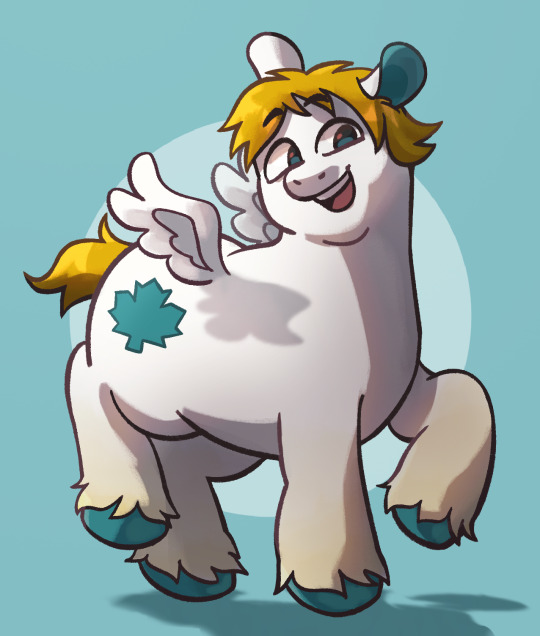
owennn!!
#total drama#td owen#total drama fanart#tdi#total drama island#mlp#this prob looks similar to other pony owen designs but this is just him in my mind#ooh i usually give pegasi little ear tufts but idk owen seemed like a round ear boy#yes his legs are piss TINTED
150 notes
·
View notes
Note
Yippers !!!! New name new usrr new pfp annd allll!!!!! LOV ITT :3333 *gibs u attention too*
YIPPIEYAYEEYYYYYYYY TJANKSSSS I like it a lot too
+10 swag tehee
8 notes
·
View notes
Text
When you try to write Devils Minion era fanfic
But history isn't cooperate sigh you
What do you mean no eastern/central Europe holiday bc of USRR (also its like only part of world a know a shit about what was going on in 70s), what do you mean musée d'Orsay was establisbed on 1986, and probably few other inconveniences I don't care enough to actually check it
Soon I'll just give up and change settings to like mids of XVII century or something, fuck the canon I guess
#interview with a vampire#amc interview with the vampire#amc iwtv#iwtv#vampire chronicles#devils minion#fanfiction#history is a bitch#vampire armand#daniel molloy#armand and daniel
22 notes
·
View notes
Text
There is a number of well-known anecdotes about how after the attack on Poland by the USRR in 1939 — both among the Bolshevik officers' wives in the newly occupied cities, as among the common people far within now-Kazachstan and Siberia where a vast amount of the Polish intelligentsia had immediately been deported — the Poles were desperately selling out their material possessions, and as a consequence the Soviet women started going to theatre in their silk nightgowns.
And the fact that the "great" Communist Republic was so poor in beautiful things that lingerie was taken for evening clothes might be hilarious — if I was not fully aware we today would make the very same mistake about what then passed for nightswear. And I don't like what it says about our material culture.
7 notes
·
View notes
Text

Obscure Design (Fresno, California, USA) - Usrr. Inspirada en la obra adjunta “El despertar de Psique! de Guillaume Seignac (1870–1924)

3 notes
·
View notes
Text

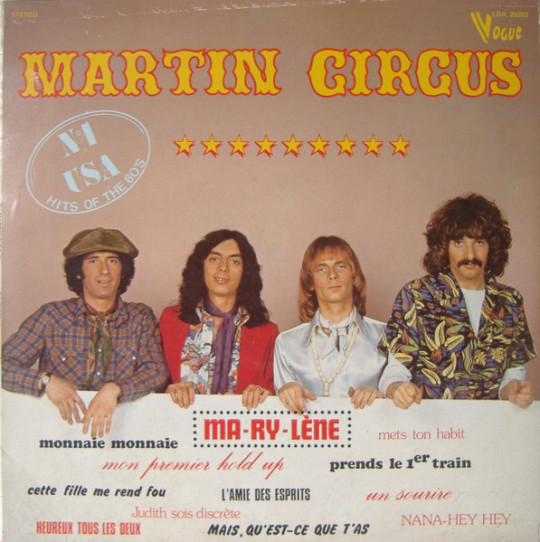
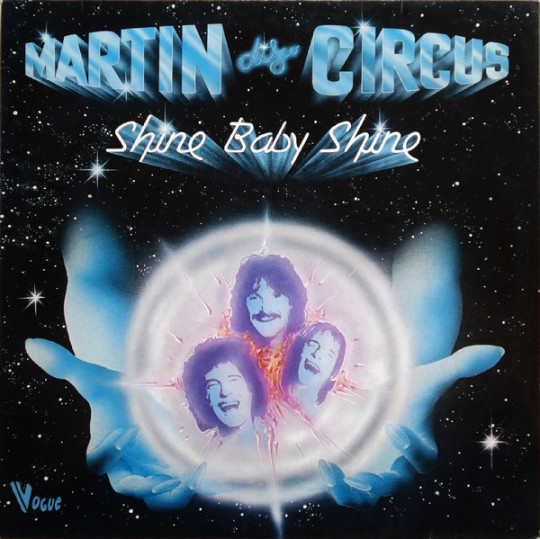
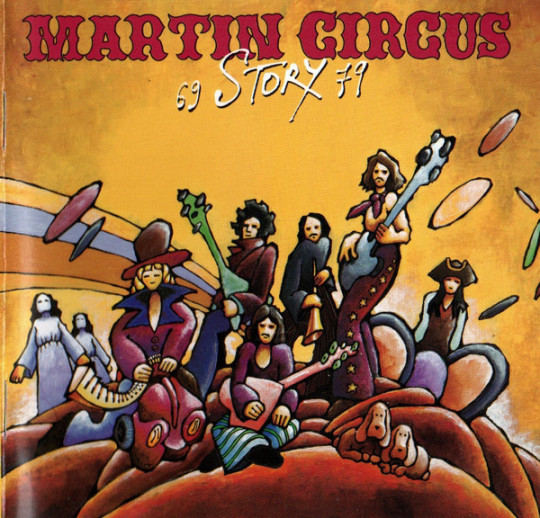
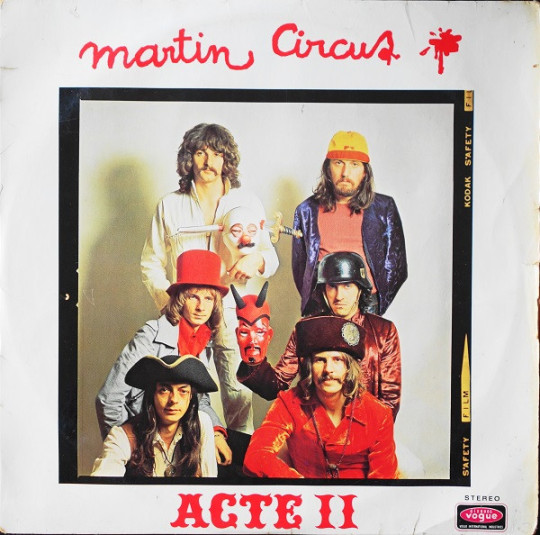

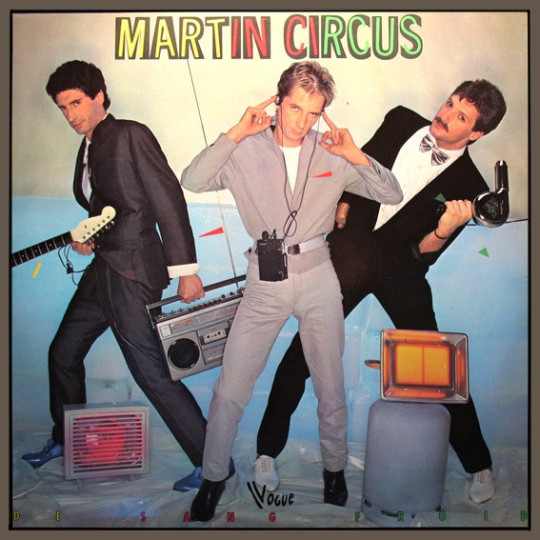
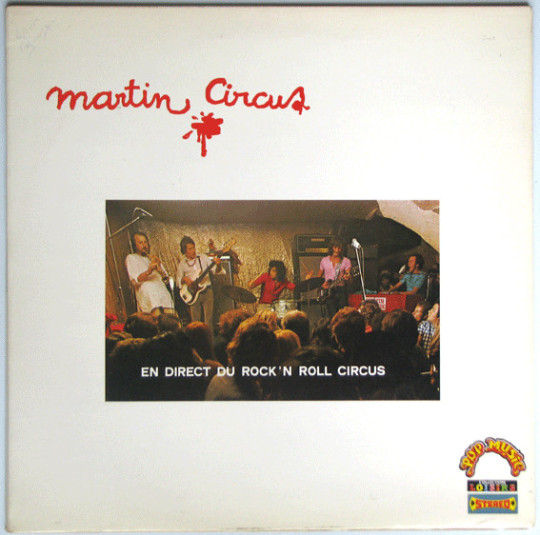

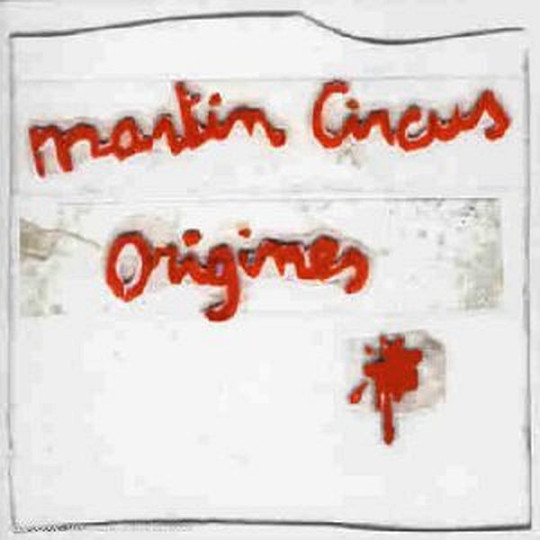
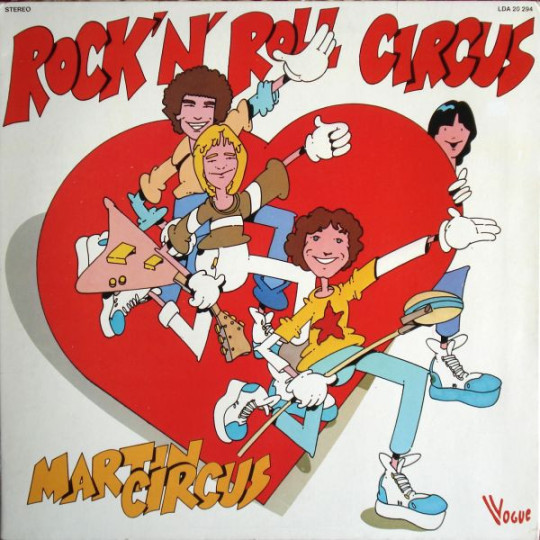
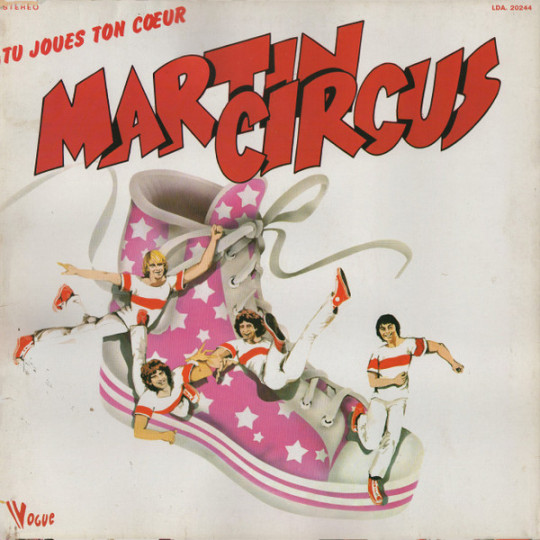
Martin Circus "En Direct Du Rock'n Roll Circus" 1970 + "Acte II" 1971 double LP + "Acte III" 1974 + "N°1 USA Hits Of The 60's"1975 + "Tu Joues Ton Cœur" 1976 + "Rock'n'Roll Circus"1977 + "Martin "Disco" Circus 1978 + "Shine Baby Shine" 1979 + "De Sang Froid"1980 + "Story 69-79" 1994 CD Compilation + "Origines" 2001 + "Evolution Française 1969-1985" 2025 LP Compilation France Psych Prog Pop Rock,Disco,Glam Rock
full
https://open.spotify.com/album/3PbUcUMUeBOGQmJxXtTVZr
full musify
https://musify.club/release/martin-circus-martin-circus-story-1969-1979-1994-855897
https://musify.club/release/martin-circus-tu-joues-ton-coeur-1976-1159150
https://musify.club/release/martin-circus-acte-iii-1974-1739445
https://musify.club/release/martin-circus-shine-baby-shine-1979-1081135
https://musify.club/release/martin-circus-martin-disco-circus-1978-888935
https://musify.club/release/martin-circus-acte-ii-1971-1377540
https://musify.club/release/martin-circus-en-direct-du-rock-n-roll-circus-1970-1082438
Martin Circus is a bit like the French Rubettes. Between pop, rock, disco and variety, they have a string of successes such as the hit that would launch them "Je m'éclate au Sénégal" written by Gérard Pisani, former sax of Johnny Hallyday and Claude François. And yes! the Martin Circus are old hands and have worn out their pants on the benches of the Golf Drouot at the same time as the Black Socks and the Wild Cats. Before Martin Circus, we find all these beautiful people in Alan Jack Civilisation, Capitals or Balthazar. Before Ticky Holgado took care of their career, they released two excellent progressive rock albums. The first is even resolutely pop, even underground, recorded at the Rock'n'Roll Circus, a mecca of counterculture in the 70s. The second will remain in the memory with the unforgettable "Je m'éclate au Sénégal" which manages the feat of being banned from the air on Europe 1. Pierre Delanoë, former program director, found this song distressing, downright useless, unworthy of being broadcast on his airwaves. Another era, the same customs. Then comes the time for covers, starting with the Beach Boys' classics that invite them to the gates of glory. Then it's time for Disco and a track that climbs in the American Billboard. Another feat of arms is their presence in the Musical Comedy (it was called a rock opera at the time...), "The French Revolution" (with Daniel Balavoine, Dani, etc.) and in the cinema, in the film "Les Bidasses en vadrouille" where they replace Les Charlots at short notice. In short, until 1987 and sporadically until 2001, the official date of the end of the band, Martin Circus did not stop surfing on the musical trends of the moment. The result: some great popular successes, no chance of entering the history of French rock, but a reasoned choice for the good management of a bank account. Before Martin Circu The latest version of Alan Jack Civilisation which was released on 45 rpm in French for Alain Pewzner and René Guérin. Balthazar for Sylvain Pauchard and Gérard Blanc. Capitals for Patrick Dietsch who played on the band's only 45 rpm released in 1966. What has become of them? Alain Pewzner and Sylvain Pauchard join Daniel Balavoine on stage and in the studio. Alain Pewzner pursued a career as a "shark" with Jean-Jacques Goldman in particular. Sylvain Pouchard produced tracks for other groups such as Les Avions. He also released a 45 rpm under his name in 1971 with USA/USRR on the B side co-signed with Serge Gainsbourg! A title that can be found in the Martin Circus repertoire in 1980 Gérard Blanc (1948 – 2009) pursued a solo career that would take him to the top of the Top 50 in 1987 with "Une autre histoire". He has also written several titles for Stéphanie of Monaco... They appeared in 2001's Tribute to Trust and a breathtaking cover of "Antisocial". He died of a haemorrhage on 24 January 2009. He was 61 years old. After several 45s in the 70s, Paul-Jean Borowski released 2 albums in quick succession in 1981 and 1982. Patrick Dietsch has three albums to his credit, in 1974 and 1979 for Vogue and again in 2010. He works for Guitarist and Bass Magazine. As for Gérard Pisani, after a few solo attempts, he found himself in 1978 in the pseudo-punk group Bulldozer, where we also met Bob Brault and Paul-Jean Borowski. In 1996, he released a jazz album. Along with Patrick Dietsch and Paul-Jean Borowski, Bob Brault can be seen in the film Camping. They are part of the group that animates the crazy evenings at the Flots Bleus campsite. Bob Brault is also the author of film scores such as Les Sous-Doués pass le bac....~
Martin Circus "En Direct Du Rock'n Roll Circus" 1970
Credits Bass Guitar – Bob Brault Drums – Jean-François Leroy* Flute, Soprano Saxophone, Bugle, Piccolo Flute – Gérard Pisani Guitar – Patrick Dietsch Organ – Paul-Jean Borowski Vocals – Gérard Pisani (tracks: A4, A6, B2, B3, B5, B6), Patrick Dietsch (tracks: A1, A3, A5, A6,), Paul-Jean Borowski* (tracks: A1, A2, A5 to B2, B5, B6) Tracklist La 3ème (Ouverture) 2:50 Moi J'ai Fait La Guerre 3:51 Tout Tremblant De Fièvre 5:25 Tomahawk 2:33 Barbe Bleue 2:50 Moi Je Lis Des Bandes Dessinées 3:00 Le Matin Des Magiciens 3:45 C'est Pas D'la Soupe 2:45 Troïka 4:00 À Quoi Sert Ma Prière 3:40 Nos Larmes Tombaient 5:00 La 3ème (Final) 1:45
Martin Circus "Acte II" 1971 double LP
Credits Bass, Flute, Percussion, Vocals, Narrator – Bob Brault Bugle, Tenor Saxophone, Alto Saxophone, Soprano Saxophone, Clarinet, Flute, Trombone, Percussion – Gerard Pisani* Drums, Violin, Viola, Percussion, Vocals – Rene Guerin* Guitar, Organ, Percussion, Vocals – Alain Pewzner Organ, Piano, Vibraphone, Accordion, Vocals – Sylvain Pauchard Vocals, Guitar, Percussion, Narrator – Gerard Blanc* Tracklist Boudjateelack Pourquoi Tous Ces Cris 6:15 Chevauchée Fantastique 5:04 Poème 8:00 Ti'Bill Poussières 7:05 J'Ai Perdu 6:20 J'Suis Une Groupie 3:52 Ouvrez Vos Mémoires 3:40 Je M'Eclate Au Senegal 4:11 Le Tromblon Magique 4:20 Hyznogod 3:37 Images 2:43 A Dada Sur Paranoïa 4:48 Façon De Parler 7:54 O'Secours Bob 3:50 J'Aimerai Bien Te Faire Flipper Un P'Tit Peu 3:34 Ma Guitare 3:47
Martin Circus "Acte III" 1974
Credits Bass, Flute, Vocals – Bob Brault Drums, Percussion – René Guerin Featuring [Débilités] – Tiki Holgado* Guitar, Vocals – Alain Pewzner Piano, Organ, Keyboards – Sylvain Pauchard Vocals, Guitar – Gérard Blanc Tracklist Docteur 3:36 Fille D'Amour 3:36 Elle Chante Au Soleil 4:08 Je Suis Né Sans Voir 3:49 On Aurait Tout Pour Etre Heureux 4:15 Je T'Aime 3:16 Les Indiens Du Dernier Matin 4:08 La Bossa Blanche 4:18 Un Accident Heureux 3:20 Toi L'Univers 3:00 Les Ballons Nous Emmènent 0:38
Martin Circus " N°1 USA Hits Of The 60's"1975
Tracklist Ma-Ry-Lene 2:39 Judith Sois Discrete 2:50 Prends Le 1er Train 2:57 Un Sourire 3:26 L'amie Des Esprits 2:49 Mets Ton Habit 3:13 Nana - Hey Hey 3:47 Monnaie Monnaie 3:01 Cette Fille Me Rend Fou 2:49 Heureux Tous Les Deux 2:28 Mais Qu'est-ce Que T'as 2:53 Mon 1er Hold Up 2:50
Martin Circus "Tu Joues Ton Cœur" 1976
Tracklist Tu Joues Ton Cœur 3:57 Chicago Dolly 3:37 Priorité A L'amour 3:24 Chasse Mon Blues Au Loin 2:55 C'est Comme Ça 2:21 Direction N.O. 3:26 Si Tu Me Loupes 3:13 Baby Baby Babe 2:38 Ça Rit Ça Pleure 2:48 Vis Ta Vie Ma-Ma-Mie 3:43 Suffit D'un Rien 4:04 L'ami D'un Soir 3:01
Martin Circus "Rock'n'Roll Circus" 1977
Tracklist Rock'n'Roll Circus 5:47 Hey Disc-Jokey 3:48 Roi Du Flipper 2:57 Tu Boudes Mon Téléphone 3:28 Comme Au Bon Vieux Temps Du Rock'n'Roll 3:11 Les Dix Commandements (St Bémol Priez Pour Lui) 4:55 Planche De Skate 2:24 Super Fan Des Rois Du Rock'n'Roll 3:26 Danse Et Tente Ta Chance 3:50 Drague Party (Le Bon Temps Ça Roule) 4:13
Martin Circus "Martin "Disco" Circus 1978
Tracklist Ite Missa Est 6:37 Pour M'En Aller Plus Loin 8:31 Pouêtt 0:22 Disco Circus 14:06 Pouêtt Pouêtt 0:25
Martin Circus "Shine Baby Shine" 1979
Tracklist Number One Woman 4:48 Calling Time 6:28 Each Day 6:07 I've Got A Treat 7:53 Shine Baby Shine 7:01 Happy Ending 5:44
Martin Circus "De Sang Froid"1980
Tracklist Tous Des Robots S.O.S. Aux Galaxies U.S.S.R/U.S.A Bains- Douches Le Tango De L'Espace Arrêtez Tout Banana Baby Tu M'Etranges Plastique Conclusion
Martin Circus "Story 69-79" 1994 CD Compilation
Tracklist Je M' éclate Au Sénégal 4:06 Marylène 2:41 Je Danse Comme Un Pingouin 4:08 Drague Party 3:44 Les Indiens Du P' tit Matin 4:54 Si Tu Me Loupes 3:13 People Réveillez-Vous 4:10 Shine Baby Shine 3:19 Tout Tremblant De Fièvre 3:39 Docteur 3:35 Retour De La Bastille (Français, Français) 1:59 Le Matin Des Magiciens 3:48 J' ai Perdu 6:24 A Dada Sur Paranoïa 4:43 J' aimerai Bien Te Faire Flipper Un P'tit Peu 4:23 Pourquoi Tous Ces Cris 3:43 Ouvrez Vos Mémoires 3:45 Il Faut Rêver 2:57
Martin Circus "Origines" 2001
Tracklist 1 On Aimerait Bien Qu'Ça Change 2 Urgence 3 Je M'Éclate Au Sénégal 4 Tout Tremblant De Fièvre 5 Question De Survie 6 La Planète Des Femmes 7 Vivement Lundi 8 Arc-En-Ciel 9 Nostalgie 10 La Voie Du Milieu 11 Elle Est Pas Belle La Vie 12 Comme Des Dieux 13 Au Même Endroit
Martin Circus " Evolution Française 1969-1985" 2025 LP Compilation
Tracklist Tout Tremblant De Fièvre 3:37 Façon De Parler 6:28 Annie, Christine Ou Patricia 4:05 À Bas Tous Les Privilèges 2:20 Les Indiens Du Dernier Matin 4:10 Mon Premier Hold-Up 2:48 Disco Circus (François K edit) 7:45 Bains Douches 5:06 J'T'Ai Vu Dans Le Canoé 4:42 Pourquoi Tu M'Lâches Pas 4:30
Membres Derniers membres
Alain Pewzner - guitare, orgue, chant (1971-1988, 2001, 2016-2017) Sylvain Pauchard - claviers, basse, chant (1971-1988, 2001, 2016-2017) Tom Bock - chant (2016-2017) Félix Sabal-Lecco - batterie (2016-2017) Anciens membres Bob Brault - basse, flûte (1968-1975, 1988, 2001) Gérard Pisani - saxophone, flute, bugle, chant (1968-1972, 1980, 2001) - († 2020) Paul-Jean Borowsky - claviers, chant (1968-1971, 2001) Patrick Dietsch - guitare, chant (1968-1970, 2001) - († 2021)[11] Jean-François Leroi - batterie (1968-1970) Gérard Blanc - chant, guitare (1971-1987, 2001) - († 2009) René Guérin - batterie, percussions (1971-1978, 1988, 2001) Michel Libretti - guitare, chant (1970) Donald Rieubon - batterie (1970) Charlie Cohen - basse (1978) Serge Haouzi - batterie (1978) Gilles Tinayre - claviers (1978) John Lorck - batterie (1979-1980) Manu Vogel - basse (1980) Pascal Woyciechowski - batterie (1980) Christian Padovan - basse (1985-1986)
Discographie
Album en public 1969 : En direct du rock'n'roll circus (en concert)
Albums studio
1971 : Acte II (double LP)[13] 1974 : Acte III 1975 : N°1 USA - Hits Of The 60's 1976 : Tu joues ton cœur 1977 : Drague Party - Rock'N'Roll Circus 1978 : Disco (bande originale du film Les Bidasses en vadrouille) 1979 : Martin “Disco” Circus (pressage LP US[14]) 1979 : Shine Baby Shine 1980 : De sang froid 1980 : In Cold Blood (pressage LP US) 2001 : Origines
Singles
1969 : Tout tremblant de fièvre (studio) / Barbe-Bleue (studio) 1969 : Le Matin des magiciens (studio) / Moi je lis des bandes dessinées (studio) 1970 : Dis-moi / Chanson pour un cadavre 1971 : Je m’éclate au Sénégal / Moi j’aime bien prendre mon pied 1971 : Sénégal / Dis-moi (pressage italien) 1971 : Je danse comme un pingouin / J’aimerais bien te faire flipper un p’tit peu 1971 : Je m’éclate au Sénégal / Je danse comme un pingouin (pressage allemand) 1972 : Les Indiens du petit matin (part. 1) / Les Indiens du petit matin (part. 2) 1972 : Il faut rêver[15]/ Annie, Christine ou Patricia 1972 : Gotta Keep Flying / Il faut rêver 1973 : Je me suis retrouvé en tutu / Je deviens comme fou fou fou 1973 : People, réveillez-vous / Nous sommes dans ce monde 1973 : La patrie est en danger / Français, Français 1974 : Un coin qui sent le foin / J’aimerais bien t’embrasser 1974 : L’Accident heureux / À vous de jouer Milord 1974 : Docteur / Je t’aime 1975 : Ma-ry-lène / Loin d’ici 1975 : Wonder tube (Ba ! Ba ! Hey ! Hey !) / Ma-ry-lène 1975 : Bye-bye Cherry / Le Violon et la Mélodie 1976 : Si tu me loupes / Un cœur qui bat 1976 : Tu joues ton cœur / Vis ta vie ma ma mie 1976 : Chase the Blues Away / Call Me (pressage allemand) 1977 : Drague Party (Le bon temps, ça roule) / Priorité à l’amour 1977 : Comme au bon vieux temps du rock’n’roll / Roi du flipper 1977 : Les Dix Commandements / Rock’n'roll Circus 1978 : J’en perds mes baskets / Hey disc jockey 1978 : Et puis, tu t’en vas / La Boule à tango 1978 : Pour m’en aller plus loin / Ite missa est 1979 : Disco circus / Ite missa est (pressage canadien) 1979 : Before it gets dark / Disco circus (pressage US) 1979 : Notre meilleur copain, c’est Tintin (vocal) / Notre meilleur copain, c’est Tintin (instrumental) 1979 : Shine Baby Shine / I’ve Got a Treat 1979 : Number One Woman / Each Day 1980 : Look Around / American Trip (pressage italien) 1980 : Bains-douches / Le Tango de l’espace 1980 : Tous des robots / Bains-douches 1980 : USSR / USA / Plastique Conclusion 1981 : Bingo-banco / Mes vœux les plus saints 1983 : Solange / J’t’ai vu dans l’canoë 1984 : Disco Circus / Disco Circus Medley (pressage canadien) 1985 : Trop sentimental / Pourquoi tu m’lâches pas ? 1987 : Je m’éclate au Sénégal / Ma-ry-lène 1987 : Je m’éclate au Sénégal (version 87) / Medley (Intro - Ma-ry-lène - Drague Party (Le bon temps, ça roule) - Si tu me loupes - Shine Baby Shine - Na-na-hey-hey-good-bye - Je m'éclate au Sénégal) 1988 : La Toka-toké (part 1) / La Toka-toké (part 2)
Anthologies
1973 : Tout tremblant de fièvre 1974 : 12 titres + 4 1976 : Greatest Hits : les Grands Succès du... Martin Circus 1979 : Le Double disque d'or du Martin Circus 1979 : Martin Circus chantent leurs succès 1979 : Marylène 1987 : Les Originaux (inclus un titre inédit Columbia signé J-M. Vignon - A. Pewzner - C. Pewzner) 1994 : 69 Story 79 2002 : Singles 69-74 2002 : Ca le fera 2004 : Anthologie 2008 : Les Plus Grands Succès de Gérard Blanc et Martin Circus (inclus cinq morceaux avec Martin Circus et une version solo en live de Je m'éclate au Sénégal)
Martin Circus "En Direct Du Rock'n Roll Circus" 1970 + "Acte II" 1971 double LP + "Acte III" 1974 + "N°1 USA Hits Of The 60's"1975 + "Tu Joues Ton Cœur" 1976 + "Rock'n'Roll Circus"1977 + "Martin "Disco" Circus 1978 + "Shine Baby Shine" 1979 + "De Sang Froid"1980 + "Story 69-79" 1994 CD Compilation + "Origines" 2001 + "Evolution Française 1969-1985" 2025 LP Compilation France Psych Prog Pop Rock,Disco,Glam Rock
https://johnkatsmc5.blogspot.com/2025/03/martin-circus-en-direct-du-rockn-roll.html?view=magazine
https://johnkatsmc5.tumblr.com/post/778813175161405441/martin-circus-en-direct-du-rockn-roll-circus
#Martin Circus “En Direct Du Rock'n Roll Circus”#Martin Circus “ Evolution Française 1969-1985”#Martin Circus “Origines”#Martin Circus “Story 69-79”#Martin Circus “De Sang Froid”#Martin Circus “Shine Baby Shine”#Martin Circus “Martin ”Disco“ Circus#Martin Circus “Rock'n'Roll Circus” 1977#Martin Circus “Tu Joues Ton Cœur”#Martin Circus “ N°1 USA Hits Of The 60's”#Martin Circus “Acte III”#Martin Circus “Acte II”#france pop rock#france progressive rock
3 notes
·
View notes
Text
I watched the HBO Chernobyl docudrama with my husband. And I don't think I'm ever going to emotionally recover.
I did have to watch with an episode summary because violence and gore is a trigger for me, so I needed to have an idea of what would happen before it happened. But just. It's horrifying. Especially knowing how little of the series was fictionalized. The consequences of it.
But what's horrifying is that the behaviors that caused the disaster still happen. Disregarding safety protocol. Putting people in charge who have no knowledge of what they are in charge of. Cutting costs at the expense of safety. Treating everything as a need to know basis.
Secrecy, lies, profits over people, government corruption are all dangerous.
The only thing that was weird to me was Ulana Khomyuk. She was a fictional character, meant to represent all the scientists who helped get the disaster under control. Which is fine, I get the point. But making the composite character a woman to add sexual tension to the film (between her and a real life person with a tragic end), was a little tasteless. But I don't think the entertainment industry knows how to tell a story, real or fiction, without having some sort of romantic twist.
But I also keep thinking if Trump is reelected, this is the type of government we could be headed for. Sorry for making it political, but like. If Russia is still the way it was in 86 as USRR, who's to say the US couldn't become that.
#chernobyl#documentary#hbo max#history#i am never going to emotionally recover from this#current hyperfixation
6 notes
·
View notes
Text
[Gif ID: Under a comment section, four Tumblr users have a conversation, forming a comment thread. Before they start typing, a textbox reads "reply threads? on my tumblr?" The conversation between usets goes like this:
User A: it's more likely than you think
User B: wait. we can thread replies? since when?
Usrr C: since NOW!
User D: omg ur right! /end ID.]

Threaded Replies are here!
Ever find it difficult to figure out what someone is replying to? Same! Now, when you reply to someone’s reply, it’ll create a nice indented thread.
Reply to a thread by clicking the reply icon at the bottom of a comment or tapping the meatball menu on a reply, then hitting “Reply.”
Collapse a thread of comments with “Hide replies” or load more with “Show more replies.”
Threads are only one level deep—replies to a thread will show at the end of that thread.
You’ll be notified when someone replies to you.
This should help keep conversations in replies more organized, meaning you don’t have to scroll back to find the beginning of an exchange: It’s in a thread!
6K notes
·
View notes
Text
what if instead of 12 the number was called PEAK then my usrr would be PEAKle🤤ok no that soubds stupid it sojnds like pickle
1 note
·
View note
Text
i memorized the youngliz ao3 tag, theres no fics on asainfics?-?1?1? Theres one fic on wattpad but its just copied from the youngliz discontinued au on twitter from like 2022, the usrr came back but ehhhh… i know tpo much bout this
0 notes
Text
thinking about creating a strawpage ((havent made those inawhile as a carrd usrr 😭😭😭))
0 notes
Note
I wish that usrr would stop fucking bitching about the stitches on their dumb strawberry head weve all had to make edits to our designs and theyre barely visible
Theyre bringing the vibe down dont enter closed species spaces if you cant make edits or follow the rules
Ya theres issues with the trait system (half of the image examples on traits arent accurate anymore for example) but at least the stitching thing is generally clear and consistent they ask people to add them all the time

🩶
0 notes